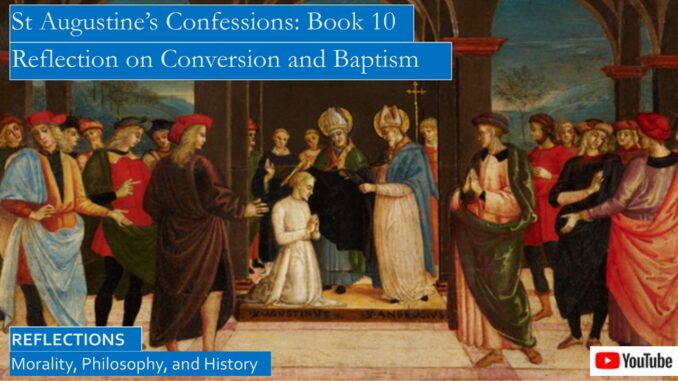
Why should we reflect on Book 10 of St Augustine’s spiritual autobiography, his Confessions, when he discusses how his conversion led to his salvation and changed how he saw the world?
St Augustine is as much a scientist as he is a theologian, many scholars regard him a precursor to today’s psychologists, as he tries to make sense of both the physical and the divine worlds, and how they interact.
He takes a scientific interest in memory, wondering: Why are our memories so undependable? Why do we forget?
YouTube Video: Confessions of St Augustine, Youth and Adolescence, Books 1 and 2
https://youtu.be/gdK1a3AbI9w
St Augustine’s Confessions: Manichaeism, NeoPlatonic Philosophy, and Monica’s Prayers, Books 3, 4, and 5
https://youtu.be/ydskqlgZSrE
St Augustine’s Confessions: Mother Monica, Concubine, Marriage, and Philosophy, Books 6 & 7
https://youtu.be/AjGbBozIReY
St Augustine’s Confessions, His Conversion, Baptism, St Monica’s Death, and Philosophy, Books 8 & 9
https://youtu.be/Vijtjxm3Ta0
St Augustine’s Confessions, Memory, Soul and Mind Book 10
https://youtu.be/xTHmGhGG6Bk
Powerpoint script, with Amazon book links:
https://www.slideshare.net/BruceStrom1/st-augustines-confessions-on-soul-mind-memory-stoicism-salvation-and-true-happiness-book-10
St Augustine’s Confessions, Time, Creation Genesis, Pagan Myths, and Manicheism Books 11, 12, and 13
https://youtu.be/Ff-XsE5CuSo
How can an immortal soul reside in an imperfect mind and memories? Does the immortal God reside in our imperfect memories? How can we objectively remember our past emotions without becoming emotional?
How do the teachings of St Augustine differ from Stoicism?
How can we attain true happiness, true happiness in God?
ST AUGUSTINE’S CONFESSIONS, BOOKS 1 THRU 9
St Augustine is my favorite Catholic saint because in every major work he explicitly states that the foundation of the Christian faith is the two-fold Love of God, and love of neighbor, where we love our neighbors as ourselves. In Book 10 St Augustine prays to God that “you want us not only to Love you, but also to love our neighbor,” and he repeats this in other books of the Confessions. St Augustine prays to God: “Give me the grace to do as you command, and command me to do as you will!”[1]
Augustine prays to God to find the “joy which truly makes me happy.” He teaches us in his further prayer to God in Book 10 that “there is a joy that is not given to those who do not Love you, but only to those who Love you for your own sake. You yourself are their joy.”
We previously reflected on Books 1 and 2, on Augustine’s Youth and Adolescence, where the original sin when Adam and Eve bit from the apple was replayed when young Augustine with his friends raided the peach orchard of a neighbor.
We previously reflected on Books 1 and 2, on Augustine’s Youth and Adolescence, and in Books 3 through 5, where he describes his youthful years spent in the Manichean heresy, turning his back on the Christianity of his mother Monica.
Confessions of St Augustine, Youth and Adolescence, Books 1 and 2
https://seekingvirtueandwisdom.com/confessions-of-st-augustine-youth-and-adolescence-books-1-and-2/
https://youtu.be/gdK1a3AbI9w
We reflected on Books 3 through 5, where he describes his youthful years spent in the Manichean heresy, turning his back on the Christianity of his mother Monica.
St Augustine’s Confessions: Manichaeism, NeoPlatonic Philosophy, and Monica’s Prayers, Books 3, 4, and 5
https://seekingvirtueandwisdom.com/st-augustines-confessions-manichaeism-neoplatonic-philosophy-and-monicas-prayers/
https://youtu.be/ydskqlgZSrE
We also reflected on the differences between Christianity, where the Almighty God is the source of all goodness, where evil is but a corruption of the good, and the dualistic Manichean system, where good and evil are more or less equal, and eternally battle for supremacy. [2]
| Christian Beliefs | Manichaeism Beliefs |
| Almighty God is omniscient, omnipresent, goodness itself | Dualistic cosmological struggle between light and darkness |
| Evil is a corruption of the good and the absence of virtue | Evil and virtue are co-equal, eternally engaged in struggle |
| Jesus Christ is the Son of God | Jesus is another prophet |
| Based on Jewish Old Testament | Derived from Zoroastrianism |
| Old Testament is Holy Scripture | Old Testament was corrupted to impose Judaism on Christianity |
| After death is judgment and resurrection of the body | Belief in reincarnation, only the perfect break free to Paradise |
As the historian Henry Chadwick notes, “Because man never wholly loses the image of God stamped on him by creation, damaged though it is, he is a divided self. This division is not easily explained by the Manichee hypothesis that man originates in a conflicting pre-cosmic mix-up of light and darkness. Among other reasons for rejecting this is the fact that our wills are seldom split between two simple choices, one good, the other evil, but can be torn apart in a dozen directions.” “Evil is an absence of god, as the Platonists say, not an ultimate nature but a perversion of the will, so that even our best actions have some intermingling of self0interest which lies beyond our power to eradicate.”[3]
The historian Peter Brown notes that the avoidance of confession is part of the Manichean system, as he quotes St Augustine from the Confessions: “It had pleased my pride to be free from a sense of guilt, and when I had done anything wrong” as a Manichean I did not need “to confess that it was myself who had done it.” As a Christian St Augustine realized that confession was needed to heal your soul.[4]
In these books St Augustine deeply grieves when his best friend dies, but he sees his love as an imperfect love, because he did not love his friend in God. Our close friends can never be our sole source of happiness, only God can be the true source of happiness.[5]
Likewise, when he sails for Rome, he leaves his mother on the docks of North Africa to escape her mother smother love, which he also saw as an obsessive selfish love, she did not love her son in God, or at least that is what St Augustine remembers. Sometimes children seek independence when they mature, they seek to evade their mother’s helicopter.[6]
As St Augustine teaches us that we should love our friends in God, he would agree with St John of the Cross that we should only choose those close friends who enable us to Love God more deeply.
St John of the Cross, Dark Night of the Soul, Seven Capital Sins and Best Type of Close Friend
https://seekingvirtueandwisdom.com/st-john-of-the-cross-dark-night-of-the-soul-seven-capital-sins-and-best-type-of-close-friend/
https://youtu.be/DgL7Y5pIFAU
In Books 6 and 7: His mother Monica sails to Italy in another ship, probably at least a few months later. St Augustine permits her to meddle in his life by arranging his engagement to a rich Christian girl who was too young to marry, coaxing him to put away his beloved concubine, mother of his son Adeodatus, likely she was from a lower social class. Later, he deeply regretted this decision. On his conversion, realizing that this too was an imperfect love, that he and his mother was on the outskirts of Babylon, he calls off the engagement, resolving to be celibate to devote himself to Christian philosophy. [7]
St Augustine’s study of NeoPlatonic philosophy, along with the sermons of St Ambrose, leads him back to Christianity.
St Augustine’s Confessions: Mother Monica, Concubine, Marriage, and Philosophy, Books 6 & 7
https://seekingvirtueandwisdom.com/st-augustines-confessions-mother-monica-concubine-marriage-and-philosophy-books-6-7/
https://youtu.be/AjGbBozIReY
We reflected in Books 8 and 9 on St Augustine’s conversion and baptism, his decision to turn his back on imperial service and return to his native North Africa, and his mother Monica’s death while waiting for the ship to bring them back home.
St Augustine’s Confessions, His Conversion, Baptism, St Monica’s Death, and Philosophy, Books 8 & 9
https://seekingvirtueandwisdom.com/st-augustines-confessions-his-conversion-baptism-st-monicas-death-and-philosophy-books-8-9/
https://youtu.be/Vijtjxm3Ta0
ST AUGUSTINE IS DRAFTED INTO THE PRIESTHOOD
When St Augustine landed in North Africa with his former student Alypius, his brother, and a few other followers, he intended to establish a small community of Christian monastic philosophers in his small family estate at Thagaste, being careful to avoid towns with a vacant bishopric, for fear of being drafted into the clergy, as he had already gained a reputation for his anti-Manichean writings.
When he visited Hippo in North Africa, as the historian Peter Brown describes, Bishop “Valerius spoke pointedly of the urgent needs of his church” while Augustine was standing among them, so the congregation “pushed him forward to the raised throne of the bishop and the benches of the priests,” “and the bishop accepted his forced agreement to become a priest in the town.”
Bishop Valerius bent canon law to name St Augustine as co-bishop, granting him teaching authority. St Augustine was permitted to move his small monastic philosopher community to the garden of the church, though much of his time was spent teaching.[8] Soon thereafter Valerius passed away, and St Augustine was appointed Bishop of Hippo. The Confessions and On Christian Doctrine were among the first works he penned as a bishop.
Many students halt their study of St Augustine’s Confessions at his baptism, but they miss the point that his conversion was a spiritual struggle rather than an earthly event. St Augustine viewed his conversion to Manicheanism as a failure to accept the Catholic Bible. His Confessions are not a book of reminiscences,[9] his Confessions are a therapy for the soul corrupted by sin.[10]
In particular, as Henry Chadwick notes, the Confessions and St Augustine’s other works battling the Manichean heresy “set out to refute their interpretation of Genesis and of St Paul, as his mind wrestled with the grand questions of Platonic metaphysics in relation to Christian faith.”[11] Which means that the final three chapters of the Confessions, which are a commentary on the Book of Genesis, with an inquiry into the nature of TIME, are a continuation of Augustine’s Confessions of faith, belief, and repentance.
ST AUGUSTINE BEGINS BOOK 10 WITH A PRAYER
St Augustine begins Book 10 with this prayer, “Let me know, for you are the God who knows me; let me recognize you as you have recognized me. You are the power of my soul; come into it and make it fit for yourself, so that you may have it and hold it without stains or wrinkles. This is my hope; this is why I speak as I do; this is the hope that brings me joy, when my joy is in what is to save me.”[12]
St Augustine exhorts in his expositions of the Psalms that “confession is understood in two senses: of our sins, and of God’s praise.”[13]
In one sense, the Confessions are a confession of faith, a confession made with the cooperation of God, as St Augustine prays:
“I make my confession, not in words and sounds made by the tongue alone, but with the voice of my soul and in my thoughts which cry aloud to you. Your ear can hear them. For when I am sinful; if I am displeased with myself, this is a confession that I make to you; and when I am good, if I do not claim the merit for myself, this too is confession.”
In another sense, God knows what our Confession will be before we do:
“My confession is made both silently in your sight, my God, and aloud as well, because even though my tongue utters no sound, my heart cries to you. For whatever good I may speak to men you have heard it before in my heart, and whatever good you hear in my heart, you have first spoken to me yourself.”[14]
The Confessions also publicly confess his own sins, to benefit his fellow Christians:
“When others read of those past sins of mine, or hear about them, their hearts are stirred so they no longer lie listless in despair crying, ‘I cannot.’ Instead, their hearts are roused by the love of your mercy and the joy of your grace, by which each one of us, weak though he be, is made strong, since by it he is made conscious of his own weakness. And the good are glad to hear of the past sins of others who are now free of them. They are glad, not because these sins are evil, but because what was evil is now evil no more.”[15]
St Augustine continues, “So, if I go on to confess, not what I was, but what I am, the good that comes of it is this. There is joy in my heart when I confess to you, yet there is fear as well; there is sorrow, and yet hope. But I confess not only to you but to the believers among men, all who share my joy and all, who like, me are doomed to die; all who are my fellows in your kingdom and all who accompany me on this pilgrimage, whether they have gone before or are still to come or are with me as I make my way through life.”[16]
ST AUGUSTINE REFLECTS ON THE SOUL AND MEMORY
Many readers are puzzled by St Augustine’s detailed reflections on the role of memory in Book 10 of the Confessions. St Augustine sees the senses as gateways to the mind and the soul, and memory as an imperfect recording of past experiences, but how can imperfect memory access an immortal soul? What is the function of the soul, and imperfect memory?
St Augustine had a prodigious memory, as did many ancient authors, he could quote verse after verse from the Bible, stringing them together in the Confessions. We must remember that in an ancient world where all books had to be copied by hand, you tried to memorize each book as you were reading it, because that may be the only time you could read it. Memory was central to the concept of intelligence in the ancient world, memory and mind were close cousins in the ancient world.
St Augustine inquires in his prayer, “What do I love when I love God? Who is this Being who is so far above my soul? If I am to reach him, it must be through my soul. But I must go beyond the power by which I am joined to my body and by which I fill its frame with life.” “God gave me this faculty when he ordered my eyes not to hear but to see and my ears not to see but to hear. And to each of the other senses he assigned its own place and its own function, I, the soul, who am one alone, exercise all these different functions by means of the senses.”[17]
St Augustine reflects on memory: “So, I must also go beyond this natural faculty of mine, as I rise by stages towards the God who made me. The next stage is memory, which is like a great field or spacious place, a storehouse for countless images of all kinds which are conveyed to it by the senses.”
In the first books of the Confessions St Augustine likewise ponders on how infants acquire language and seeks to find insight into the original sin of Adam in the behavior of infants and children. St Augustine is pondering many insights confirmed by modern psychology, how our memories are not mere tape recordings of past events, but how we remember past events is affected by who we are, whether we genuinely Love God and whether we love our neighbor as ourselves, in a selfless rather than a selfish love. Just as this two-fold love influences whether we judge rather than love our neighbor, so it also affects how we remember past events in our lives, and lessons we learn from past events and teachings.
Confessions of St Augustine, Youth and Adolescence, Books 1 and 2
https://seekingvirtueandwisdom.com/confessions-of-st-augustine-youth-and-adolescence-books-1-and-2/
https://youtu.be/gdK1a3AbI9w
St Augustine wonders, “We may know by which of the senses these images were recorded and laid up in memory, but who can tell how the images themselves are formed? Even when I am in darkness and in silence I can, if I wish, picture colors in my memory.” “All this goes on inside me, in the vast cloisters of my memory. In it are the sky, the earth, and the sea, ready at my summons, together with everything that I have ever perceived in them by my senses, except the things which I have forgotten. In it I meet myself as well. I remember myself and what I have done, when and where I did it, and the state of my mind at the time.”
St Augustine connects memory to the soul: “The power of my memory is prodigious, my God. It is a vast, immeasurable sanctuary. Who can plummet its depths? And yet it is a faculty of my soul. Although it is part of my nature, I cannot understand all that I am. That means that the mind is too narrow to contain itself entirely. But where is that part of it which it does not itself contain? Is it somewhere outside itself and not within it? How can it be part of it if it is not contained in it?”[18]
Memories are in the mind, as St Augustine reflects: “No one can pretend that the memory does not belong to the mind. We might say that the memory is a sort of stomach for the mind, and that joy and sadness is like sweet and bitter food.”[19]
But memories are imperfect and often fade, often “they sink back and recede back into the more remote cells in my memory, so that I have to think them out again like a fresh set of facts, if I am to know them.”[20]
St Augustine reflects, “My memory also contains my feelings, not in the same way as they are present to the mind when it experiences them, but in a quite different way that is keeping with the special powers of the memory. Even when I am unhappy, I can remember times when I was cheerful, and when I am cheerful, I can remember past unhappiness. I can recall past fears and yet not feel afraid, and when I remember that I once wanted something, I could do so without wishing to have it now. Sometimes memory induces the opposite feeling, for I can be glad to remember sorrow that is over and done with and sorry to remember happiness that has come to an end.”
St Augustine marvels at how our mind remembers not only past events, but past emotions, impressions and snapshots, and knowledge itself. “The power of the memory is great, O Lord. It is awe-inspiring in its profound and incalculable complexity. Yet it is my mind: it is my self. What, then, am I, my God? What is my nature? A life that is ever varying, full of change, and of immense power. The wide plains of my memory and its innumerable caverns and hollows are full of countless things of all kinds. Material things are there by means of their images; knowledge is there of itself; emotions are there in the form of ideas or impressions of some kind, for the memory retains them even while the mind does not experience them, although whatever is in the memory must also be in the mind.”
Is the soul limited by the capacities of our mind and memory? St Augustine implores God, “So, I must go beyond memory if I am to reach the God who made me different from the beasts that walk on the earth and wiser than the birds that fly in the air. I must pass beyond memory to find you, my true God, my sure sweetness. But where will the search lead me? Where am I to find you? If I find you beyond my memory, it means that I have no memory of you. How am I to find you if I have no memory of you?”[21]
But yet memory is imperfect, as St Augustine reflects: “When memory loses something, and that is what happens whenever we forget something and try to remember it, where are we to look for it except in the memory itself?” “Or could it be that it had not entirely escaped our memory, but part of it remained giving a clue to the remainder, because their memory, realizing that something was missing and feeling crippled by the loss of something to which it had grown accustomed, kept demanding that the missing part be restored?”[22]
St Augustine wonders how God can dwell in our imperfect memory: “In which part of my memory are you present, O Lord?” “I searched for you in the part of my memory where the emotions of my mind are stored, but here I did not find you,” “for you are not the image of a material body, nor are you an emotion such as is felt by living men when they are glad or sorry, when they have sensations of desire or fear, when they remember or forget, or when they experience any other feeling.”
“Why do I ask what place is set aside in my memory as your dwelling, as if there were distinctions of place in the memory? Truly you do dwell in it, because I remember you ever since I first came to learn of you, and it is there that I find you when I am reminded of you.”[23]
Clearly St Augustine does not want to limit the soul by the imperfections of our imperfect mind and memory. But in the last century we are reminded that we are indeed limited by the limitations of our mind and memory, the best example is how our mental institutions were emptied when doctors learned that schizophrenia could be controlled by mediation. We also have several reflections on how our elderly suffering from dementia are robbed not only of their memories and their mind, but dementia also robs them of their moral compass. Patients with advanced dementia cannot be held responsible for their actions.
How I Halted a Foreclosure on a Destitute Owner with Advanced Dementia! We Discuss Dementia
https://seekingvirtueandwisdom.com/how-i-halted-foreclosure-on-owner-with-advanced-dementia-reflecting-on-dementia/
https://youtu.be/_uAJPCCRNQ8
Glen Campbell Suffering from Alzheimer’s, Early Signs and Symptoms
https://seekingvirtueandwisdom.com/glen-campbell-suffering-from-alzheimers-early-signs-and-symptoms/
ST AUGUSTINE: CAN WE CONTROL OUR DREAMS?
In addition to pondering memory, St Augustine also ponders why dreams are so difficult to control. Many monastics like St John Climacus in the Ladder of Divine Ascent teach us that our self-discipline should even extend to our dreams, which Saint Augustine suggests is unrealistic.
St Augustine laments, “In my memory, the image of things imprinted upon it by my former habits still linger on,” particularly his intimate memories. “When I am awake, they impose themselves upon me, though with little strength. But when I dream, they not only give me pleasure,” but I reenact these intimate memories in my dreams. “Surely it cannot be that when I am asleep, I am not myself, O Lord my God?”
St Augustine asks, “During sleep, where is my reason which, when I am awake, resists such suggestion?” “Is my reason sealed off when I close my eyes?” “Why is it that even in sleep I often resist the attractions of these images?” “Yet the difference between waking and sleeping is so great that” I do not feel responsible for the actions in my dreams.
But St Augustine does pray for pure dreams: “More and more, O Lord, you will increase your gifts in me, so that my soul may follow me to you, freed from the concupiscence which binds it, and rebel no more against itself. By your grace it will no longer commit in sleep those shameful, unclean acts inspired by sensual images, which lead to the pollution of the body: it will not consent to them.”[24]
ST AUGUSTINE AND STOICISM, AND FASTING
Stoicism infused both ancient philosophy and the teachings of the Church Fathers, including St Augustine, who prays for the strength to endure our trials on earth: “My sorrows are evil and they are at strife with joys that are good, and I cannot tell which will gain the victory. Have pity on me, O God, in my misery I do not hide my wounds from you. I am sick, and you are the physician. You are merciful: I have need of your mercy, Is not our life on earth a period of trial? For who would wish for hardship and difficulty? You command us to endure these troubles, not to love them. No one loves what he endures, although he may be glad to endure it.”[25]
St Augustine stoically laments: “I become a prey to my habits, which hold me fast. My tears flow, but still I am held fast. Such is the price we pay for the burden of custom! In this state I am fit to stay, unwilling though I am; in that other state, where I wish to stay, I am not fit to be. I have double cause for sorrow.”[26]
How do the teachings of St Augustine differ from Stoicism? Henry Chadwick observes: “The ancient moralists often give the impression that they expect a man to cultivate cool reason to become virtually incapable of being moved. Augustine knows that our emotions are disordered. But the feelings are not in themselves the cause of the disorder which has deeper roots.” It is the emotions that rule human nature. “The emotions do not need to be repressed, but rather need to be elevated and purified, as when a man’s being is directed upwards towards his true destiny in faith and obedience.”[27]
The stoics and monastics emphasize the need for fasting to control the passions. St Augustine reflects, “Every day I wage war upon the body by fasting. Time and time again I force my body to obey me, but the pain which this causes me is cancelled by the pleasure of eating and drinking.” “I look upon food as a medicine. But the snare of concupiscence awaits in” when passing from hunger to contentment, which leads to “an ominous kind of enjoyment.” Are we allured to pleasure when we eat our fill?[28]
St Augustine reflects on how men hear what they want to hear: “Lord, you are Truth, and you are everywhere present where all seek counsel of you. You reply to all at once, though the council each seeks is different. The answer you give is clear, but not all hear it clearly. All ask you whatever they wish to ask, but the answer they receive is not always what they want to hear. The man who serves you best is the one who is less intent on hearing from you what he wills to hear than on shaping his will according to what he hears from you.”[29]
TRUE HAPPINESS FOUND IN TWO-FOLD LOVE OF GOD AND NEIGHBOR
All men seek happiness. Where can you find true happiness? Only in the two-fold Love of God and neighbor.
St Augustine prays: “How do I look for you, O Lord? For when I look for you, you who are my God, I am looking for a life of blessed happiness. I shall look for you, so that my soul may live. For it is my soul that gives life to my body, and it is you who gives life to my soul. How am I to search for this blessed life? For I do not possess it until I can rightly say, ‘This is all I want. Happiness is here.’ Am I to seek it in memory, as though I had forgotten it but still remembered that I had forgotten it?”
St Augustine continues, “Surely happiness is what everyone wants, so much so that there can be none who do not want it. But if they desire it so much, where did they learn what it was? If they had learned to love it, where did they see it? Certainly, happiness is in us, though how it comes to be I cannot tell. Some people are happy in the sense that they have actually achieved a state of happiness. Others are happy only in the hope of achieving it.”[30]
St Augustine reflects, “We cannot therefore be certain that all men desire true happiness, because there are some who do not look for joy in you; and since to rejoice in you is the only true happiness, we must conclude that they do not desire true happiness.” “True happiness is to rejoice in the truth, for to rejoice in the truth is to rejoice in you, O God, who are the Truth, you, my God, my true light, to whom I look for salvation.”
St Augustine continues, “When they love happiness, which is the same as to rejoice in truth, they must love truth also.” “Men love the truth when it bathes them in its light: they hate it when it proves them wrong. Because they hate to be deceived themselves but are glad if they can deceive others. They love the truth when it is revealed to them but hate it when it reveals that they are wrong.”[31]
FURTHER TEMPTATIONS TO AVOID
St Augustine warns that another trap is acquiring knowledge that does not improve your soul, “futile curiosity that masquerades under the name of science and learning.” “This futile curiosity can cause men to turn to sorcery to do obtain knowledge for perverted purposes,” and even religious notions that put God to the test, “demanding signs and wonders from him not in the hope of salvation but simply for the love of the experience.” St Augustine cautions us against the study of astrology and necromancy, including seances, sacrilegious rites, and the theater.[32] Today, St Augustine would likely warn against pornographic or gratuitously violent films that do not improve the soul.
St Augustine warns against another kind of temptation: “a desire to be feared or loved by other men, simply for the pleasure that it gives me, though in such pleasure there is no true joy. This desire leads only to a life of misery and despicable vainglory. It is for this reason more than any other that men neither love you nor fear you in purity of heart.”[33]
St Augustine also warns us: “Deep in our inner selves there’s another evil:” “self-complacency, the vanity of those who are pleased with themselves, although they either fail to please others or have no wish to do so and even actively displease them. But though they are pleasing to themselves, they are gravely displeasing to you, because they congratulate themselves not only upon qualities which are not good, as though they were good, but also upon good qualities received from you, as though they were their own gifts to themselves; or else they recognized them as yours, but claim them for their own merits; or they know that they have received them by your grace alone, but still they grudge your grace to others and will not rejoice in it with them.”[34]
CHRIST AS MEDIATOR FOR MAN, AND WORD OF GOD
What distinguishes Christianity from NeoPlatonism, and heresies like Manichaeism? This curious Christ who is both God and man. St Augustine teaches us, “As man, Christ is our mediator; but as the Word of God, he is not an intermediary between God and man because he is equal with God, and God with God, and together with him one God.”
However, Peter Brown points out that NeoPlatonism compels the philosopher to yearn for enlightenment, philosophical inquiry that compels the philosopher to intense prayer as he seeks unity with the One, “the Unknown God so far above the human mind that the philosopher could only increase his knowledge of Him by committing himself entirely to Him,” “seeking a direct relationship with God.” Peter Brown quotes the NeoPlatonic philosopher Plotinus: “We invoke God Himself, not in loud words, but in that way of prayer which is always within our power, leaning in soul towards Him by aspiration, alone towards the alone.”
We reflected on how the later NeoPlatonist Dionysius the Areopagite deeply influenced the Church Fathers, including:
Eastern Church Fathers:
St Maximus the Confessor
Andrew of Crete
Mystical Theologians
Author, Cloud of Unknowing
Meister Eckhart
Western Church Fathers and Theologians:
St Thomas Aquinas,
John Scotus Eriugena
Pope Gregory the Great
Albert the Great
St John of the Cross
Pseudo-Dionysius the Areopagite, Influence of Neo-Platonism on Mystical Christianity
https://seekingvirtueandwisdom.com/pseudo-dionysius-the-areopagite-influence-of-neo-platonism-on-mystical-christianity/
https://youtu.be/wlr55ddb-lc
St John of the Cross quotes Dionysius the Areopagite, calling him St Denis, directly in his Dark Night of the Soul.
St John of the Cross, Dark Night of the Soul, Seven Capital Sins and Best Type of Close Friend
https://seekingvirtueandwisdom.com/st-john-of-the-cross-dark-night-of-the-soul-seven-capital-sins-and-best-type-of-close-friend/
https://youtu.be/DgL7Y5pIFAU
St Augustine praises God: “How great was your love for us, good Father, for you did not even spare your own son, but gave him up to save us sinners! How great was your love for us, when it was for us that Christ, who did not see, in the rank of Godhead, a prize to be coveted, accepted an obedience which brought him to death, death on the cross! He who alone was free among the dead, for he was free to lay down his life and free to take it up again, was for us both Victor and Victim in your sight, and it was because he was the Victim that he was also the Victor. In your sight he was both Priest and Sacrifice, and it was because he was the Sacrifice that he was also the Priest. By being your son, yet serving you, he freed us from servitude and made us your sons. Rightly do I place in him my firm hope that you will cure all my ills through him who sits at your right hand and pleads for us: otherwise, I should despair.”
St Augustine prays, “Lord, I cast all my troubles on you and from now on I shall contemplate the wonders of your law. You know how weak I am and how inadequate is my knowledge: teach me and heal my frailty. Your only Son, in whom the whole treasury of wisdom and knowledge is stored up, has redeemed me with his blood. Save me from the scorn of my enemies, for the price of my redemption is always in my thoughts. I eat it and drink it and minister it to others; and as one of the poor I long to be filled with it, to be one of those who eat and have their fill. And those who look for the Lord will cry out in praise of him.”[35]
CONCLUSION
St Augustine prays, “There can be no hope for me except in your great mercy.” “Oh love ever burning, never quenched! Oh charity, my God, set me on fire with your love! You command me to be continent. Give me the grace to do as you command, and command me to do what you will.”[36]
St Augustine fondly remembers his conversion: “I have learned to love you late, Beauty at once so ancient and so new! I have learned to love you late!” “You called me; you cried aloud to me; you broke my barrier of deafness. You shone upon me; your radiance enveloped me; you put my blindness to flight. You shed your fragrance about me; I drew breath and now I grasp of your sweet odor. I tasted you, and now I hunger and thirst for you. You touched me, and I am inflamed with the love of your peace.”[37]
DISCUSSING THE SOURCES
St Augustine was an excellent orator and writer, but the Confessions is the most beautifully crafted and closely edited of his works, and there are many translations. Although the Nicene Fathers is an outdated translation, we always consult it for the excepts from his Retractions as well as the interesting translator prefaces.
We also consulted both Peter Brown’s and Henry Chadwick’s Biographies on St Augustine for their summaries on the Confessions, which gave us additional insights to how his criticisms and disappointments of the Manichean religion of which he was an acolyte for so many years shaped the Confessions.
Please view the first video on the Confessions for more comments on my sources. During this reading I was less puzzled by the last books of the Confessions, so I did not need to consult Gary Willis’ excellent alternate translation.
Confessions of St Augustine, Youth and Adolescence, Books 1 and 2
https://seekingvirtueandwisdom.com/confessions-of-st-augustine-youth-and-adolescence-books-1-and-2/
https://youtu.be/gdK1a3AbI9w
[1] St Augustine, Confessions, translated by RS Pine-Coffin (New York: Dorset Press, 1986, 1961, originally 400 AD), Book 10, Chapter 37, pp. 245-246.
[2] Eusebius, The History of the Church or Ecclesiastical History, Book 30, pp. 319-230 and https://en.wikipedia.org/wiki/Manichaeism and St Augustine, Confessions, Book 5, Chapter 11, pp. 105-106.
[3] Henry Chadwick, Augustine of Hippo, A Life (Oxford University Press, 2009, 2010), Chapter 7, pp. 91-92.
[4] Peter Brown, Augustine of Hippo, Biography (Berkeley and Los Angeles: University of California press, 1967 and 2000), Chapter 16, pp, 125-134.
[5] Phillip Cary, Augustine, Philosopher and Saint, Teaching Company, 1997, Lecture 4, Confessions, Love and Tears.
[6] St Augustine, Confessions, Book 5, Chapter 8, p. 101.
[7] St Augustine, Confessions, Book 5, Chapter 8, p. 101.
[8] Peter Brown, Augustine of Hippo, Biography, Chapters 13-14, pp, 125-134.
[9] Peter Brown, Augustine of Hippo, Biography, Chapter 16, pp. 155-157.
[10] Peter Brown, Augustine of Hippo, Biography, Chapter 16, p. 158.
[11] Henry Chadwick, Augustine of Hippo, A Life, Chapter 7, p. 89.
[12] St Augustine, Confessions, Book 10, Chapter 1, p. 207.
[13] St Augustine, Confessions, Translator’s Preface, In the Nicene and Post-Nicene Fathers, First Series, Volume 1, translated by JG Pilkington (Boston: Hendrickson Publishers, 1994, first published 1886), p. 29.
[14] St Augustine, Confessions, Book 10, Chapter 2, pp. 207-208.
[15] St Augustine, Confessions, Book 10, Chapter 3, pp. 208-209.
[16] St Augustine, Confessions, Book 10, Chapter 4, pp. 209-210.
[17] St Augustine, Confessions, Book 10, Chapter 7, p. 213.
[18] St Augustine, Confessions, Book 10, Chapter 8, pp. 214-216.
[19] St Augustine, Confessions, Book 10, Chapter 14, pp. 220-221.
[20] St Augustine, Confessions, Book 10, Chapter 11, p. 218.
[21] St Augustine, Confessions, Book 10, Chapter 17, pp. 223-224.
[22] St Augustine, Confessions, Book 10, Chapter 19, p. 225.
[23] St Augustine, Confessions, Book 10, Chapter 25, pp. 230-231.
[24] St Augustine, Confessions, Book 10, Chapter 30, pp. 233-234.
[25] St Augustine, Confessions, Book 10, Chapter 28, p. 232.
[26] St Augustine, Confessions, Book 10, Chapter 40, pp. 248-249.
[27] Henry Chadwick, Augustine of Hippo, A Life, Chapter 7, p. 93.
[28] St Augustine, Confessions, Book 10, Chapter 31, pp. 234-235.
[29] St Augustine, Confessions, Book 10, Chapter 26, p. 231.
[30] St Augustine, Confessions, Book 10, Chapter 20, p. 226.
[31] St Augustine, Confessions, Book 10, Chapter 23, pp. 229-230.
[32] St Augustine, Confessions, Book 10, Chapter 34, pp. 241-243.
[33] St Augustine, Confessions, Book 10, Chapter 36, p. 244.
[34] St Augustine, Confessions, Book 10, Chapter 39, p. 248.
[35] St Augustine, Confessions, Book 10, Chapter 43, pp. 250-252 and Peter Brown, Augustine of Hippo, Biography, Chapter 16, p. 159.
[36] St Augustine, Confessions, Book 10, Chapter 29, p. 233.
[37] St Augustine, Confessions, Book 10, Chapter 27, pp. 231-232.

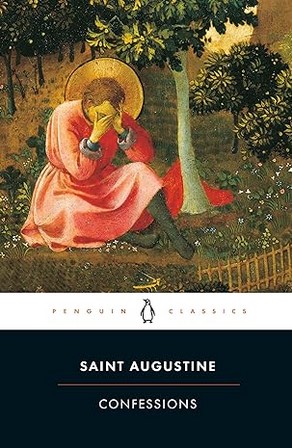
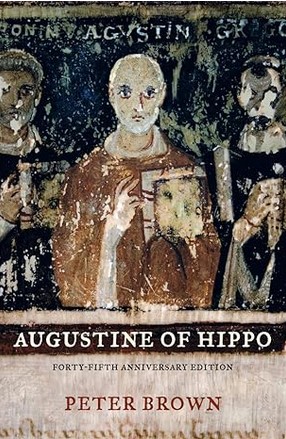
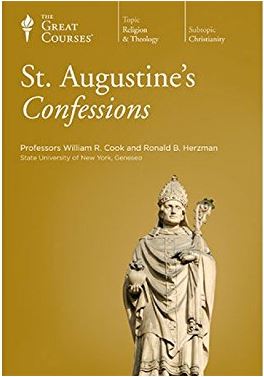
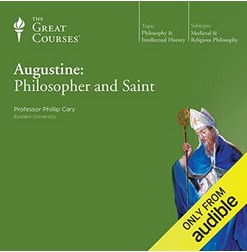
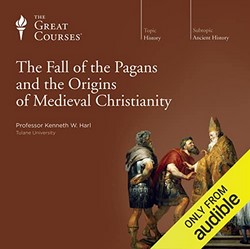
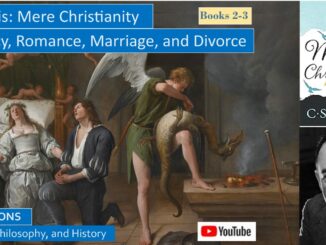
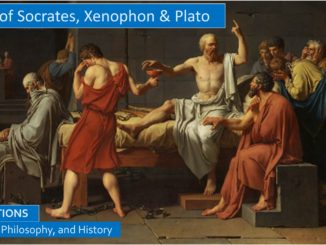
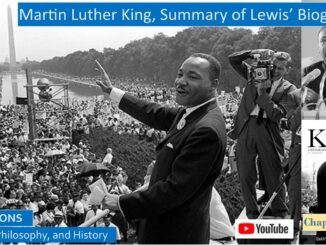
Be the first to comment